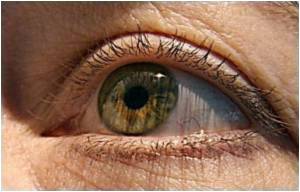
Results from this study, in conjunction with prior in vitro data, suggest valproic acid may be an effective treatment for photoreceptor loss associated with RP.
Five of the seven patients in the study experienced improvement in their field of vision.
Because of its already known qualities as a potent inhibitor of the inflammatory response pathway and cell death, valproic acid was believed to have a unique profile making it a potential candidate as a retinal disease treatment.
"Repurposing drugs already approved by the FDA and which have been shown to be safe, such as valproic acid, is an economical and time-efficient way to quickly bring new treatments to patients," said Kaushal.
The study is published in the July 20 online edition of the British Journal of Ophthalmology.
Advertisement










